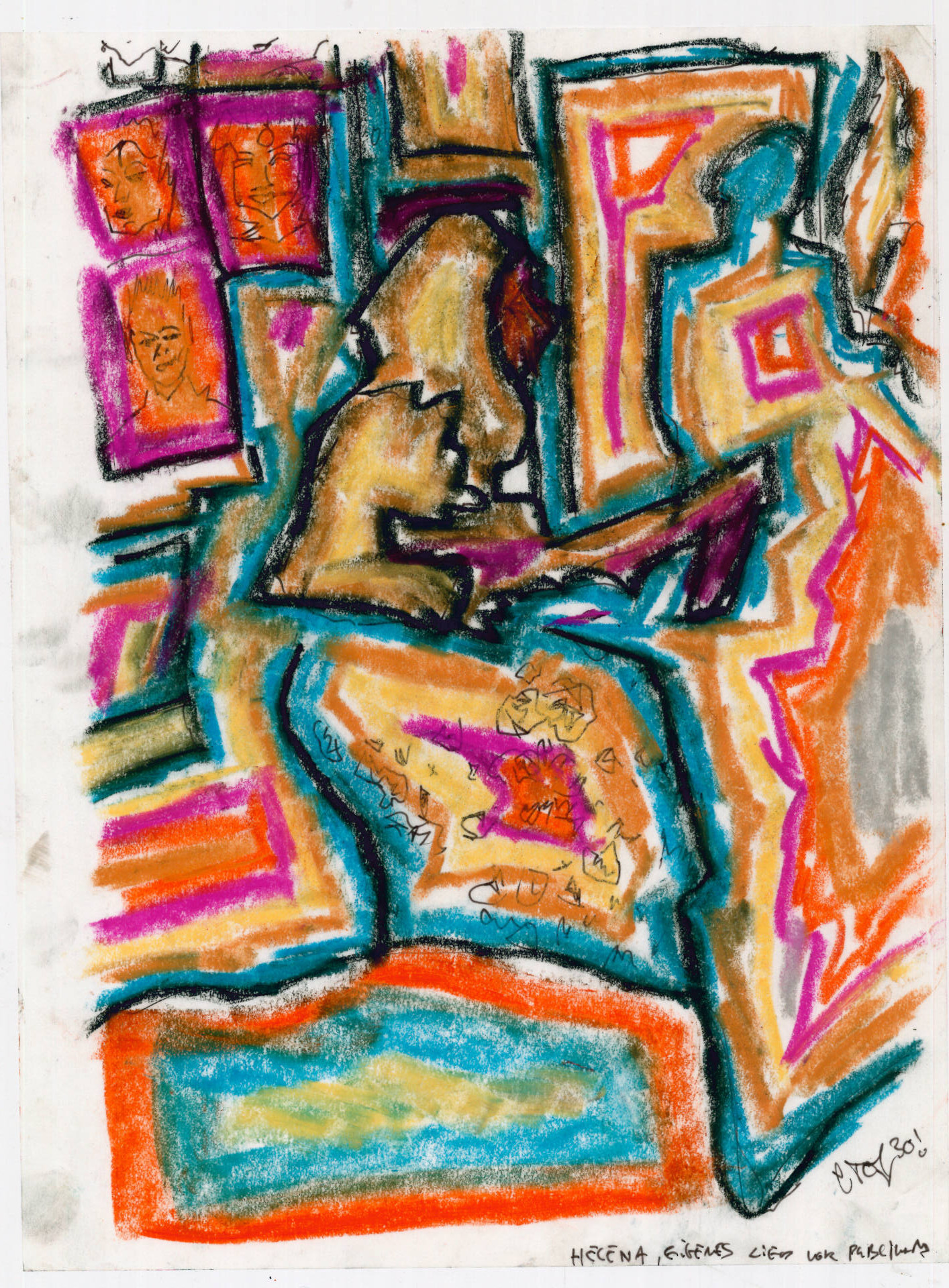„Berlin – where you can find everything except boredom and stagnation“
I come from the Ukraine, and I am 58 years old. My family moved to Germany right after the collapse of the Soviet Union in 1992. The Quota refugee act made the entry and the naturalization possible. My husband was a biology scientist. He was hoping for a better Chance for opportunities for professional advancement in Germany. His university diploma was accepted immediately. He was purposeful and flexible. First he worked free of charge, then he got a job as a scientist. Now he is very successful in his job and even works as a civil servant. Before emigrating. I was a lecturer at the National Medical University (Latin chair) in Kharkiv, wrote poems and songs.

Jelena,own song,Etone30,2024
My university diploma as a Slavic scholar and a pedagogue was at first not accepted in Germany. In the beginning I worked as a geriatric nurse so I could integrate in the world of work. I had to qualify for the educational profession. First I completed a continuing education course in social management in Berlin, then a service training course at the Christian-Albrecht-University in Kiel, where I acquired the professional qualification coach, learning coach. Parallel to the qualification I supervise teenagers with a migration background in an integration project in Berlin during the transition from school to work, and was a freelance family helper on behalf of the youth welfare office in Berlin Mitte. Due to the additional qualifications and professional experience , my academic degree as a teacher was recognized by the Berlin state. After that I worked as a social worker and Coach for teenagers in different educational and recreational facilities in Berlin and Brandenburg. I am currently working as a mentor for refugees. Before that I acquired knowledge about the refugee problems at another qualification course in Berlin. My son, who was only 5 month old when we came to Germany is fully integrated here. He graduated from high school with a grade A. After that he studied medicine at the Charité University in Berlin. Soon he will work as a doctor. One of the first sensory impressions in Germany was an unusual , mild winter almost without snow. What I instantly liked were the typical German characteristics like reliability and thoroughness. I only had to adapt to the somewhat excessive accuracy and punctuality of the Germans. What I find negative about Germany is that some fellow citizens with a migration background are sometimes a bit to loud in public places and facilities. Immigrants should consider and respect the traditions, customs and customs of the country that welcomes them with an open heart. I feel well in Germany. I still write poems, also in German. One of them MAI was published in the library for German poems from the German Realis publisher in 2016. My new poem BERLIN reflects my enthusiasm for this world metropolis., which has a lively mood and a lot of dynamism, and where you can find everything except boredom and stagnation.